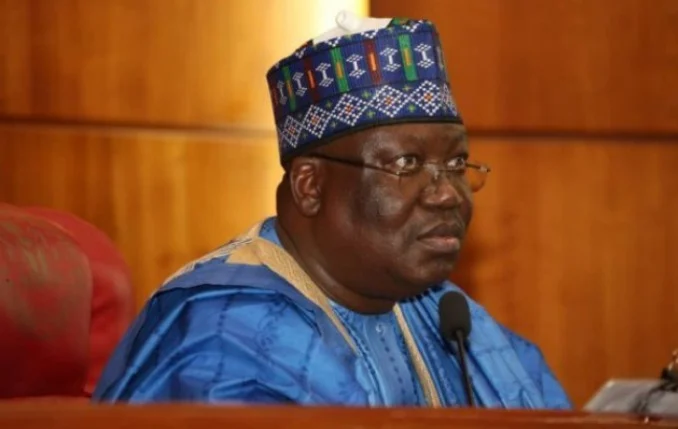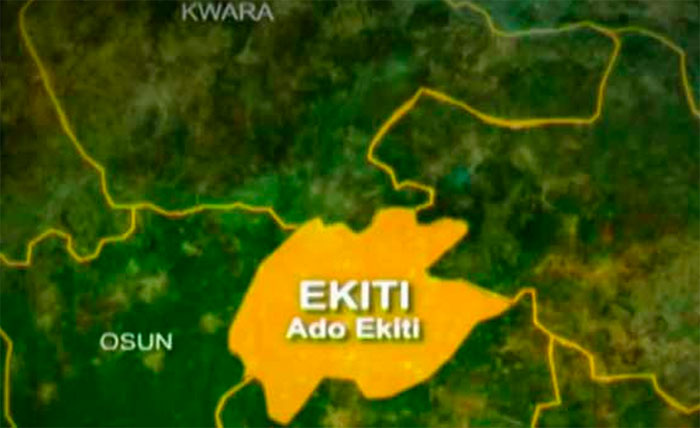• Buhari rejected bill in order to rig 2023 poll, APC plans to manipulate results – PDP
THE Senate on Wednesday failed to override the veto of the President, Major General Muhammadu Buhari (retd.), on the Electoral Act Amendment bill.
The President of the Senate, Dr Ahmad Lawan, after an executive session, said the lawmakers had decided to take the President’s rejection of the bill to their constituencies during Christmas and New Year holidays before deciding on the next line of action.
Buhari had withheld assent to the Electoral Act amendment bill 2021, insisting that the inclusion of the mandatory direct primaries in the bill might pose financial, legal and security challenges.
While the House of Representatives led by Femi Gabajabiamila had resolved to debate the matter after they returned from recess in January, the Senate remained adamant even as 73 senators reportedly resolved to override the President’s veto.
It was learnt that the leadership of the House was waiting on the Senate to override the President’s veto and then the Reps would follow suit. This information, it was learnt, had been communicated to Lawan.
Aware of the plan to override the President’s veto, several governors of the All Progressives Congress relocated to Abuja and began lobbying Lawan and some other influential lawmakers.
A top source said, “Many APC governors relocated to Abuja over this matter. The lobbying was led by Governor Kayode Fayemi (Ekiti) and Atiku Bagudu (Kebbi), Lawan assured them that the President would not be embarrassed.”
At plenary on Wednesday, Lawan said the chamber would consult with the House of Representatives on how to respond to the President’s decision to veto the bill.
Lawan made this known after the Senate emerged from an executive (closed-door) session to deliberate on the President’s decision to withhold assent to the electoral bill passed by the National Assembly.
He noted that the provisions of the 1999 Constitution (as amended) do not permit the chamber to exclusively take any action on overriding a Presidential veto in the absence of the House.
Lawan stated that a joint position would be reached with the House after due consultation with Nigerians to determine the appropriate line of action, after both chambers reconvene from the Christmas and New Year break.
We will consult our constituents during recess, they have a role to play, says Lawan
Speaking on what transpired in the closed session, Lawan said, “The Senate, in a closed session, deliberated on matters relevant to the workings of the Senate in particular and the National Assembly in general. The Senate, also in the closed session, discussed how to respond to the letter from Mr. President on the electoral bill amendment.
“The Senate consequently resolved to consult with the House of Representatives in January when both the Senate and House will be in session.
“Presently, the House of Reps has gone or recess and like we all know, the constitutional provision is for the Senate and House of Representatives to jointly take the appropriate action.
“The Senate also resolved to consult with our constituents during our recess in January. The Senate believes that our constituents have a role to play as the major stakeholders in the laws that we make in the National Assembly.”
But a top member of the House told The PUNCH that Lawan was only being clever, adding that the House had informed him that the Senate could go ahead to override the veto.
“Lawan was only being clever. We had informed him that once the Senate overrides the President’s veto, we would concur. This is how we passed the bill in the first place. He was the one who scuttled this bill,” the lawmaker who wished to remain anonymous said.
However, it was learnt that the National Assembly may not go ahead with the plan to amend the Electoral Act.
A lawmaker told The PUNCH that in the letter written to the National Assembly by the President, the lawmakers were not advised to send an amended version.
He said the President had shown time and again that he had no problem with the Electoral Act 2015 and so the lawmakers would stop embarrassing themselves.
The lawmaker added, “The President rejected four electoral bills from the 8th National Assembly and has now rejected one from the 9th Assembly. It is obvious that he does not have any problem with the current Act. If he did, a bill would have originated from the Presidency requesting an amendment.
“From 2022, we will not be sitting as regularly as we should because members will be visiting their constituencies for empowerment ahead of elections. From what we decided at the House, we will not be seeking any further amendment. Besides, the President did not expressly state that he will sign the bill once we remove the provision for direct primaries.”
Buhari has so far declined the Electoral Act amendment five times. In March 2018, the 8th Assembly passed the electoral bill along with a controversial clause that makes it compulsory for legislative and governorship elections to be held before the Presidential poll.
But President Buhari refused to sign the Electoral Amendment Bill 2018. In a letter dated March 3, 2018, he said he withheld his assent to the bill because the amendment to the sequence of the elections in Section 25 of the Principal Act might infringe upon the constitutionally guaranteed discretion of the Independent National Electoral Commission which had ultimate powers to determine the sequence and order of elections.
The lawmakers subsequently removed the controversial clause and transmitted it to the President for assent five months later. But in September, Buhari again rejected the bill, citing some errors in the bill. He subsequently asked the lawmakers to make corrections and send the bill back to him on time.
The bill was again sent to Buhari for assent. This time around a provision for electronic voting was included which would boost the credibility of the polls. This aspect was embraced by civil society organisations but the President rejected it once more in December, claiming that it was improper to amend electoral laws barely two months before the 2019 elections.
However, the Peoples Democratic Party’s caucus in the House has vowed to mobilise for overriding the President on the bill.
The leader of the caucus, Kingsley Chinda, in a statement issued on Wednesday, alleged that Buhari refused to sign the bill into law due to the provision for electronic transmission of election results and not restriction of political parties to direct primary as the President noted in his letter to the National Assembly.
Chinda’s statement was titled ‘Save Nigeria now from Buhari: PDP Caucus Lawmakers Cry Out…Say Nigeria Seized by Hostage Takers, Bandits, Terrorists…As Mr President Shows Utter Disdain for Constitution…Calls on Buhari to Resign.’
The statement partly read, “On the issue of the Electoral Act amendment bill, the caucus expressed concerns that in the past one month, Nigerians have waited on General Buhari to give assent to the electoral reform bill passed to him by the National Assembly.
“As was postulated in several quarters, he has declined assent to same, using the cost of direct primaries as a decoy. The untold reason of declining is to avoid the electronic transmission of results which will improve the credibility of the electoral system.”
Meanwhile, the PDP has accused the APC of scuttling the signing of the bill because some key provisions in the bill would undermine the APC’s grand design to rig the 2023 general elections.
In a statement by its National Publicity Secretary, Debo Ologunagba, the opposition party claimed the APC had been in trepidation of the amendment to the Electoral Act, due mainly to the provision of electronic transmission of election results, which will completely eliminate the APC’s manipulations and alteration of results at elections. ”
Act fast on Electoral Act, Saraki tells N’Assembly
A former President of the Senate, Dr Bukola Saraki, has urged the National Assembly to act fast on the Electoral Act.
Saraki, in a statement on Wednesday, said the National Assembly must either override the president’s decline of assent or remove the contentious provision on direct primaries.
He said, “Now that the President has conveyed his decision to decline assent to the Electoral Act [amendment] Bill, I am sure that I speak on behalf of millions of Nigerians in urging the National Assembly to act fast.
“This is because we cannot sit back and allow one contentious clause to throw away all the positives in the proposed Electoral Act [amendment] Bill. At this point, two options are open to the National Assembly. They either veto the president’s decline of assent or remove the contentious provision on direct primaries and send it back to the president for his assent.”
SPONSORED: For your surprise birthday, wedding or house-warming celebration, event, report, featured story, religious activities, and others reach us @Voice Air for media coverage. Available on request nationwide🏍️🚙 We promise to satisfy you to your taste. 08072633727 (For WhatsApp & calls)
The news you need is here 💯%




